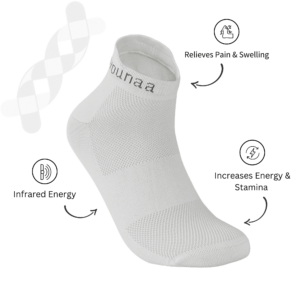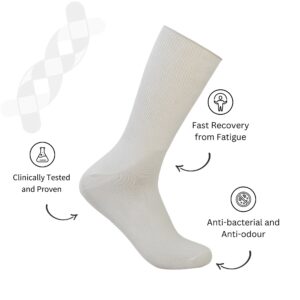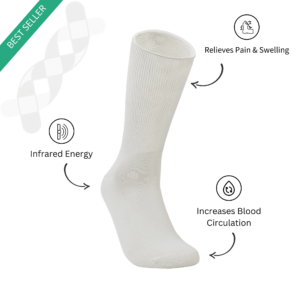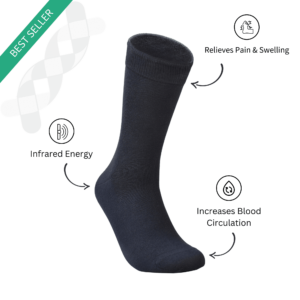When we talk about diabetes we refer to how it can cause heart problems or lead to kidney or liver damage. We rarely talk about how diabetes can affect the brain. New research is starting to show concrete evidence that there is a link between diabetes and Alzheimer’s disease.
In fact, researchers are seeing so many connections between the two that they are now calling Alzheimer’s as type 3 diabetes. But how is there a direct link between diabetes and Alzheimer’s and how can we protect ourself from the condition.
What’s The Link Between Diabetes And Alzheimer’s Disease?
Research has shown that those with diabetes have small frontal and temporal lobes in the brain. Secondly, MRI scans of people with type 2 diabetes have also shown that communication between different chambers of the brain is slightly compromised.
There are three major reasons how diabetes affects the brain. The first reason is that high levels of blood sugar cause a hindrance in oxygen flowing in the body. This is why most other organs in the body are affected and the brain is no exception.
However, through research, we have seen that there is an increased risk of dementia and Alzheimer’s because a diabetic person has problems with insulin. They either don’t produce enough insulin or their body is not able to read the insulin as well as it used to and this directly affects the brain.
The third reason for dementia or Alzheimer’s is that reduced sleep often puts the body at greater risk for amyloid buildup in the brain. Diabetics often have difficulty sleeping and hence this can directly affect their brain health.
This is why diabetics are at a greater risk of Alzheimer’s. Diabetics above 65 years of age or those who are Hispanic, Asian or African are more likely to get Alzheimer’s. If you have blood pressure, cholesterol and any form of heart disease, it also puts you at a greater risk of getting diabetes.
Though we often assume that older people get Alzheimer’s, people below 65 can also get the condition.
How To Prevent Alzheimer’s Disease?
If you are at risk of getting Alzheimer’s, there is still a chance to act on it and keep Alzheimer’s at bay.
Here are some ways to protect yourself from Alzheimer’s Disease:
1. Having A Mediterranean Diet
A diet that is rich in fruits, vegetables, whole grains and lean white meat is perfect for brain health. These meals are rich in antioxidants which promote a strong and healthy brain.
While individual components in these meals may not have much significance, they collectively have an impact on your brain health. So, instead of including certain healthy tips from the Mediterranean diet, work on ways to make a complete switch to resemble the diet.
2. Cardio Exercises
Exercises that send oxygen to the brain are one of the best ways to promote brain health. Our brain does quite a lot of strenuous activities throughout the day. Pushing more oxygen to the brain will do it a lot more good.
30 Minutes of intense cardio exercise (if your body allows it) is great for your brain because it pumps oxygen directly to your brain. You can do anything from Zumba, to running or any forms of dancing.
If you have other health conditions, it may be best to check with your doctor once before you start with cardio.
Secondly, while cardio is great for your overall body, it may be strenuous for your feet. This is why it is important to wear the right kind of diabetic shoes and socks.
3. Lose Weight
If you have type 2 diabetes and you also struggle with weight loss, consider losing around 5% of your body weight. Increase in inches around the waistline often leads to insulin resistance and type 2 diabetes, so by reducing a few kilos will directly impact the body’s ability to use insulin.
If you have recently been diagnosed with type 2 diabetes, there are ways to reverse the condition and most of it involves reducing weight.
4. Get Good Sleep
Undisturbed sound sleep at night can greatly improve your brain function. If you have insomnia, there are natural ways to improve your quality of sleep. We would suggest not to use sleeping pills because prolonged use of these pills will reduce their effectiveness.
Instead, talk to your doctor and work out a timetable that gives you an hour before your bedtime so that you can relax. Avoid using your phone or doing anything that stimulates the mind. This will help improve your sleep.
5. ‘Use It Or Lose It’
Last but not least, if you want your brain to stay healthy, you need to use it. It’s like a muscle, if you stop working it out, it will become smaller. Studies show that those who do crosswords and puzzles are less likely to get Alzheimer’s.
So, challenge yourself. Learn that new language, play memory games as often as you can and read books instead of watching movies. All these things will keep your brain alive and active and will protect you from getting Alzheimer’s.
Diabetes opens up the risk of many other diseases, but if you take care of yourself, you can keep them all at bay. It’s not the end of the world, rather just a small hurdle for a beautiful long life that you have to live.




























